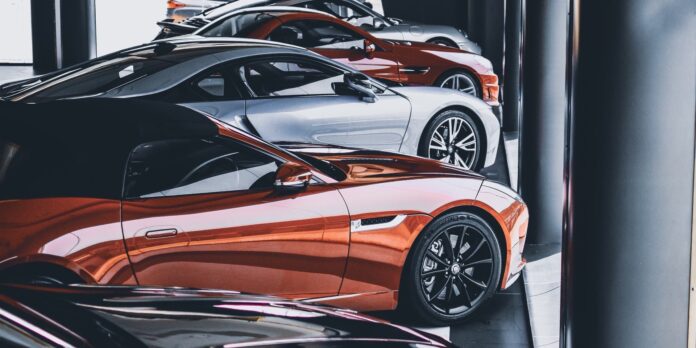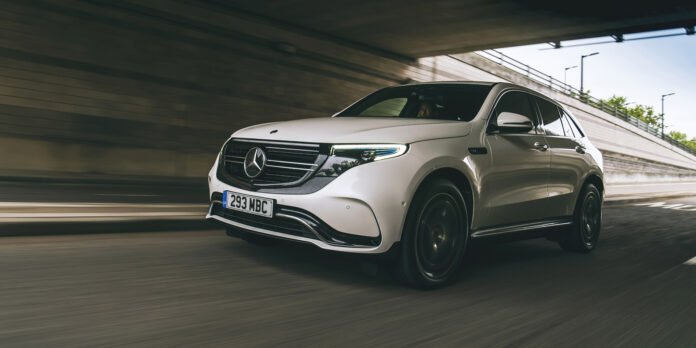As more of us lease and finance cars, rather than buying them outright, will the future of GAP insurance become more or less relevant?
We spoke to ALA Insurance (one of The Car Expert’s commercial partners) to find out more about what changes are currently going on in the specialist insurance market and what we can expect from the future of GAP insurance.
GAP insurance is one of the UK’s most misunderstood insurance products. For most people, the first time they hear about GAP is at the car dealership as they’re buying a car. In the words of ALA Insurance CEO, Simon England, dealerships have treated this type of insurance “like a profit centre, doing the industry a fair bit of reputational damage”.
In simplest terms, GAP insurance provides additional cover over and above what your standard car insurance will pay out in the event that your car is declared a total loss (which basically means stolen or written-off). The exact amount that you receive depends on the type of GAP policy you have taken out, which is something car dealers are not too hot at explaining.
Undoing the damage
So what is the reputation damage that Simon England mentioned? Until legislation was introduced to protect consumers, most GAP sales took place where dealers pressured buyers to buy a policy on the spot – at a vastly inflated price – when they were buying a car. The typical method was to instil fear into the buyer that they could lose all the money they were in the process of spending, and that a GAP policy from the dealer was the only way to protect that investment.
Nowadays, the Financial Conduct Authority (FCA) limits dealers’ commissions on GAP to no more than 50%, which automatically limits how much a dealer can mark-up a policy price. Dealers also need to hold off 48 hours before selling a customer a GAP insurance policy after first introducing it, to give buyers time to research and make a more informed choice.
This has resulted in many smaller, more independent dealers no longer offering GAP insurance policies, as it’s no longer as lucrative. Some of the larger networks, however, are known to continue applying less ethical practices. This may involve outsourcing potential buyers to third-party telemarketers, calling new car owners with a 30-day guarantee.
England argues “People don’t need to be sold to like that. This creates so many issues, not least with the use of data.”
Indeed, many consumers rely on government regulations to trust their data is being secured appropriately, but there will always be leaks – and the more people who have access to your personal information, the more potential there is for your details to be compromised. Even within the last year, dealership network Sandicliffe Motor Group was the victim of a targeted cyber attack, in which hundreds of customers’ bank account details and medical histories may have been compromised.
England argues that there’s a better way to do business and that figures from the pandemic support such a claim. He says “We’ve seen a 30% growth in policy numbers in the pandemic. Where before 80% of policies were sold through dealers, the pandemic has encouraged car buyers online to do more research”
This has also sparked change in the marketplace as well. Where 70% of GAP policies have traditionally been taken out on new vehicles, ALA Insurance says the split between new and used cars is now more like 50/50.
There’s also a remarkable difference in those considering GAP insurance. “There’s a misconception that GAP is only required for cars bought on finance,” England explains.
“Understanding the complete loss of a vehicle, leaving you with a burdensome debt is perhaps much easier to cognitively appreciate than a chunky loss of your savings and your vehicle if you’re a cash buyer. Yet, in either scenario, the vehicle owner is left in the same position; no car, no way to replace like-for-like.”
So what does the future of GAP insurance look like?
Looking at the way the insurance landscape is changing, the increasing use of technology and more hyperflexible policies – even enabling customers to be covered for a few hours in someone else’s vehicle – England acknowledges there are areas ripe for change in this sector.
Increased trustworthiness
It seems internet misinformation campaigns aren’t limited to the political arena, and trustworthiness is imperative for the credibility of any insurance policy.
Internet-savvy shoppers will usually get the best deals, since they’re already comfortable with buying online and rely on customer reviews – from providers like Trustpilot or Reevoo – to determine the trustworthiness of a company. England says that ALA’s telephone operators are not commission-based, so their only job is to assist you rather than sell you a policy.
Integration of advanced technology
The ‘own fault’ designation accounts for almost 35% of claims. (Somewhat surprisingly, the data shows that there are more accidents in better weather, suggesting drivers are more careful when the road conditions are poorer.) With the growth and normalisation of advanced driver assistance systems, which in the future will include more driver health monitoring, there’ll likely be fewer accidents through loss of control.
Insurance companies are already seeing an increase in the use of dashcams to determine liability in claims. It’s resulting in less fraud and a 30% increase in split liability, according to dashcam manufacturer Nextbase, and more tracker devices are being installed to mitigate against theft, which accounts for almost 25% of claims.
All of this means calculating the value of policies and the damage sustained in accidents will be much more accurate and that should, in theory at least, result in more competitive policy pricing.
Shift in car ownership
England cites changes in car ownership as one of the biggest factors for the GAP insurance market. The shift to personal contract purchase (PCP) finance, leasing and subscription-based acquisition models (for both new and used vehicles) suggests a growing need for specialised GAP products that cover finance liability as well as the original vehicle price. This is largely because your financial liability in a total loss situation is likely to be more
Freak weather
In recent years, the climate change conversation has grown. Though ALA’s statistics show flooding and tree damage only accounts for 4% of total claims, the unpredictability of weather patterns means GAP insurance may be even more suitable.
For example, the risk of your car being written off is higher if you live in a high-risk flood area, which can alter the risk-to-benefit ratio of taking out a GAP insurance policy. Flood damage can easily lead to a car being declared a total loss, as the complicated electronics in all modern cars are really not designed to be submerged in water.
In closing…
The GAP insurance sector, like other specialist insurances, has room to grow and improve to become a better-understood product. With car dealers no longer allowed to sell GAP on the spot, opportunities have opened up for online providers to disrupt the markte and provide much better value for customers.
Here at The Car Expert, we’ve seen enormous demand for all the GAP insurance content that we’ve produced over the last six months or so, as car buyers seek out more information on exactly what GAP is and whether it’s right for them.
Climbing back from a perception of oversold policies is no mean feat, but the future of GAP insurance seems bright. Simon England remains confident that the right GAP policy can suit anyone driving a car less than 12 years old and is certain that “if you buy it right, [GAP insurance] is affordable.”
More GAP insurance information
- Special offer: Save 10% on GAP insurance from ALA Insurance
- Read more: GAP insurance information and advice at The Car Expert











